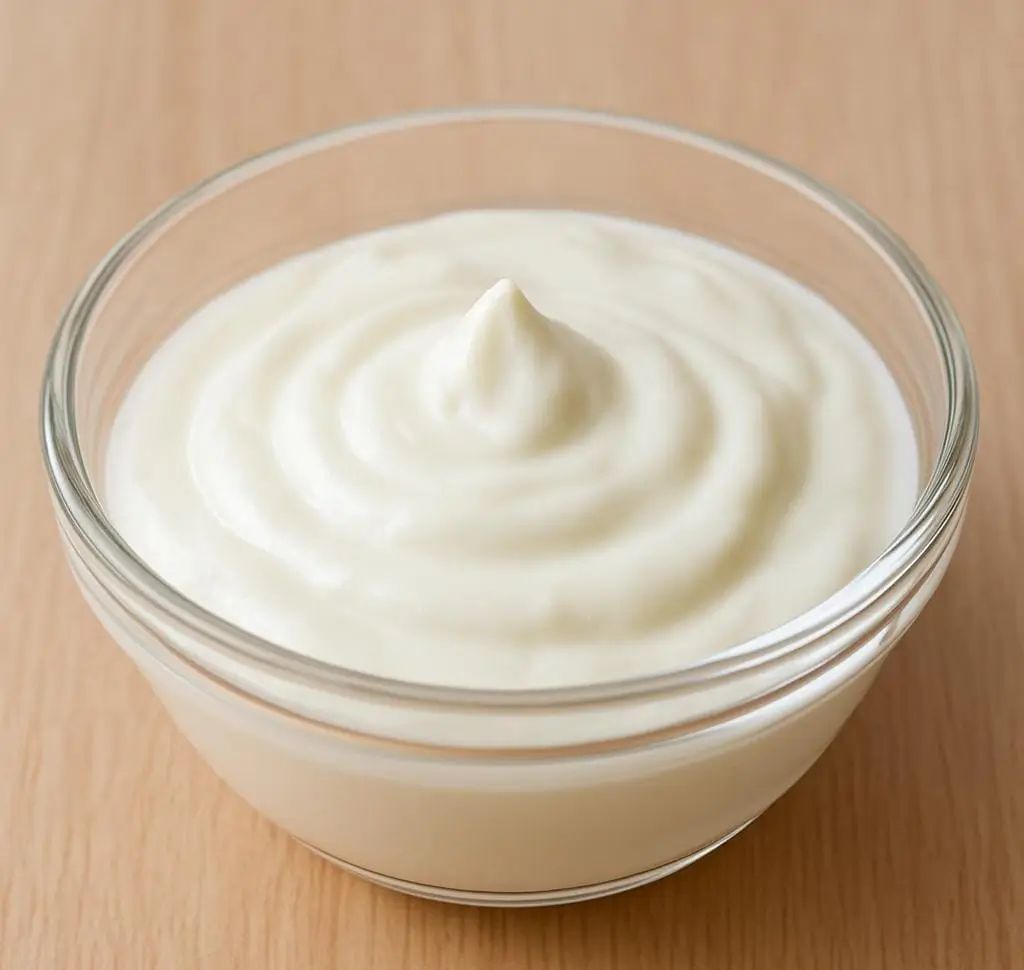As a dog owner, you’re always on the lookout for healthy treats that can enhance your furry friend’s diet. One common question that arises is: can dogs eat yogurt? The answer is yes, but with some important caveats. Yogurt can be a nutritious addition to your dog’s meals when chosen and served correctly, especially plain unsweetened varieties that avoid harmful additives. In this comprehensive guide, we’ll explore everything you need to know about feeding yogurt to dogs, including its safety, best yogurt brands for dogs, benefits like yogurt for dog diarrhea relief, risks, and more. Whether you’re curious about Greek yogurt for dogs, dog probiotics supplements through yogurt, or frozen yogurt treats for dogs, we’ve got you covered.
Is Yogurt Safe for Dogs?

Yogurt is generally safe for dogs, but not all types are suitable. Plain, unsweetened yogurt without harmful additives like xylitol is the way to go. Many dogs can tolerate yogurt in moderation, but safety depends on your dog’s individual health and tolerance to dairy. Dogs often lose the ability to digest lactose after puppyhood, which can lead to digestive issues if fed too much dairy. Always start with a small amount to monitor for any adverse reactions, such as gas or diarrhea. If your dog shows signs of lactose intolerance, it’s best to avoid yogurt altogether or opt for lactose-free alternatives. Consulting your veterinarian is crucial, especially if your dog has pre-existing conditions like pancreatitis or allergies.
What is the Best Kind of Yogurt for Dogs?
When selecting yogurt for dogs, prioritize plain, non-fat or low-fat varieties without added sugars or artificial sweeteners. Greek yogurt for dogs stands out as an excellent choice because it has lower lactose levels and higher protein content compared to regular yogurt. Look for yogurts with live and active cultures to maximize probiotic benefits. Avoid flavored options like vanilla or fruit-infused yogurts, as they often contain extra sugars that can harm your dog’s health. Best yogurt brands for dogs include Stonyfield Organic or plain options from Chobani, but always check the label for xylitol, a toxic sweetener for dogs.
Benefits of Yogurt for Dogs
Yogurt can be more than just a tasty snack for dogs—it offers several health advantages when incorporated thoughtfully into their diet. Here’s a closer look at how yogurt supports your dog’s well-being, including as a source of dog probiotics supplements.
Probiotic Support for Gut Health
One of the top benefits of yogurt for dogs is its probiotic content, which helps balance gut bacteria and improve digestion. Probiotics can alleviate issues like diarrhea, especially after antibiotics, and enhance nutrient absorption, leading to a healthier microbiome and reduced risk of gastrointestinal problems. Yogurt for dog diarrhea can be particularly helpful in mild cases.
Calcium and Bone Strength
Yogurt is rich in calcium, essential for maintaining strong bones, teeth, and overall skeletal health in dogs. Since dogs don’t produce calcium naturally, adding yogurt as a supplement can support heart function and nerve health, particularly beneficial for growing puppies or senior dogs prone to bone issues.
Protein for Muscle Maintenance
The high protein content in yogurt aids in muscle repair and maintenance, making it a great addition for active or working dogs. Protein also helps dogs feel fuller longer, which can assist in weight management when yogurt is used as a meal topper rather than a standalone treat.
Immune System Boost and Disease Prevention
Probiotics in yogurt can strengthen your dog’s immune system, potentially reducing the risk of diseases and even cancer. Additionally, the peptides in yogurt’s whey may combat tartar and plaque, promoting better dental health and preventing tooth decay over time.
Risks of Feeding Yogurt to Dogs
While yogurt has its perks, it’s not without potential downsides. Understanding these risks ensures you feed yogurt safely and avoid any adverse effects on your dog’s health.
Lactose Intolerance and Digestive Issues
Many adult dogs are lactose intolerant, lacking the enzymes to digest dairy properly, which can lead to symptoms like gas, diarrhea, vomiting, or bloating. Starting with small amounts is crucial to monitor for these reactions, and opting for low-lactose options like Greek yogurt can help mitigate this common issue.
Toxicity from Additives Like Xylitol
Yogurt containing xylitol, a common artificial sweetener, is extremely toxic to dogs and can cause severe symptoms including low blood sugar, seizures, and liver failure. Always scrutinize labels to avoid flavored or sweetened yogurts that might harbor this dangerous ingredient.
High Fat Content and Related Health Problems
Full-fat yogurts can contribute to weight gain, obesity, or even pancreatitis in dogs, especially smaller breeds or those with pre-existing conditions. Sticking to non-fat or low-fat varieties helps prevent these risks while still providing nutritional benefits.
Added Sugars and Long-Term Health Concerns
Sugars in flavored yogurts can lead to dental problems, diabetes, or excessive calorie intake over time. These additives are hard for dogs to process and can disrupt their overall diet balance, so plain versions are always the safer bet to avoid unnecessary health complications.
How Do I Know How Much Yogurt to Give My Dog?
Determining the right amount of yogurt for your dog is essential to reap the benefits while avoiding digestive issues or overfeeding. Factors like your dog’s size, weight, age, activity level, and any health conditions play a key role. As a general guideline, yogurt should be treated as an occasional treat, not a daily staple, and should not exceed 10% of your dog’s total daily caloric intake to prevent nutritional imbalances or weight gain. Always introduce yogurt gradually—start with half the recommended amount and monitor for 24-48 hours for signs of intolerance, such as diarrhea or gas. Puppies, seniors, or dogs with sensitivities may need even smaller portions or veterinary approval. Consult your vet for personalized recommendations, especially if your dog is on a special diet.
Suggested Serving Sizes
| Dog Size | Weight Range | Recommended Amount per Serving | Frequency Suggestion | Notes |
|---|---|---|---|---|
| Extra Small | Under 10 lbs | ½ – 1 teaspoon | 1-2x/week | Ideal for toy breeds like Chihuahuas; use lactose-free if sensitive. |
| Small | 10-20 lbs | 1-2 teaspoons | 2-3x/week | Suitable for breeds like Beagles; mix with food to aid digestion. |
| Medium | 21-50 lbs | 1-2 tablespoons | 2-3x/week | Good for Labs or Bulldogs; opt for low-fat to prevent pancreatitis. |
| Large | 51-90 lbs | 2-3 tablespoons | 1-2x/week | For breeds like German Shepherds; monitor calories for active dogs. |
| Giant | Over 90 lbs | 3-4 tablespoons (up to ¼ cup) | 1-2x/week | Best for Great Danes; ensure plain variety to avoid added sugars. |
What Kind of Yogurt Can Dogs Eat?
Plain, Unsweetened Yogurt
Plain, unsweetened yogurt is the safest and most recommended type for dogs. Opt for non-fat or low-fat versions to minimize calorie intake and reduce the risk of digestive upset. This type of yogurt avoids added sugars and artificial flavors that can lead to health issues like obesity or diabetes in dogs. Always check the label to ensure there are no preservatives or sweeteners, making it a simple yet nutritious treat when given in moderation.
Greek Yogurt for Dogs
Greek yogurt is an excellent choice for dogs due to its strained production process, which results in lower lactose levels compared to regular yogurt. It’s higher in protein and contains live active cultures that support gut health. Can dogs eat Greek yogurt? Yes, as long as it’s plain and unsweetened—it’s particularly suitable for dogs with mild lactose sensitivities, offering a thicker texture that’s great for stuffing toys or freezing into treats.
Yogurt with Live Cultures
Look for yogurt labeled with “live and active cultures” to maximize probiotic benefits for your dog. These beneficial bacteria, such as Lactobacillus and Bifidus, can aid digestion and boost immunity. Avoid expired or overly processed yogurts where the cultures may no longer be active, ensuring your dog gets the full nutritional punch from this dairy option.
Alternative Yogurts for Lactose-Intolerant Dogs
For dogs that struggle with dairy, consider lactose-free yogurt or plant-based alternatives like almond or coconut yogurt, provided they are unsweetened and free from xylitol. These options provide similar creamy textures without the lactose that can cause discomfort, making them ideal for sensitive pups while still delivering key nutrients.
Best Ways to Serve Yogurt to Dogs
Serving yogurt to dogs can be fun and creative. Mix a spoonful into their kibble as a meal topper for added flavor and nutrition. Freeze yogurt in ice cube trays or silicone molds for a cooling summer treat, like frozen yogurt treats for dogs. Stuff it into a Kong toy and freeze for mental stimulation. You can also blend yogurt with dog-safe fruits like blueberries or bananas for a smoothie-style snack. Homemade yogurt biscuits or roll-ups are another engaging option, ensuring portions remain small.
Yogurt Recipes for Dogs

Frozen Yogurt Pup-sicles
Ingredients:
- 1 cup plain Greek yogurt
- 1/2 cup dog-safe fruits (e.g., mashed blueberries or bananas)
- Optional: A dash of peanut butter (xylitol-free)
Instructions:
- Mix ingredients in a bowl.
- Pour into ice cube trays or silicone molds.
- Freeze for 2-4 hours.
- Serve one per day as a refreshing treat.
This recipe provides probiotics and is perfect for hot days.
Yogurt and Pumpkin Digestive Bites
Ingredients:
- 1/2 cup plain yogurt
- 1/2 cup canned pumpkin (pure, no spices)
- 1/4 cup oats (ground for easier digestion)
Instructions:
- Combine all ingredients.
- Roll into small balls.
- Bake at 350°F for 10-15 minutes or freeze raw.
- Store in the fridge for up to a week.
Great for gut health and mild diarrhea relief.
How To Safely Feed Yogurt to Your Dog
To safely feed yogurt to your dog, always choose plain varieties and introduce it gradually. Check labels for xylitol and added sugars, and opt for organic or probiotic-rich options. Monitor for signs of intolerance like diarrhea or lethargy—if issues arise, stop immediately and consult a vet. Feed in moderation as part of a balanced diet, and consider your dog’s overall calorie needs to prevent obesity.
Where Can I Find Nutritional Information About Yogurt?
Nutritional information about yogurt can be found on product labels, which detail calories, fat, protein, and probiotics per serving. For broader data, visit reliable sources like the USDA FoodData Central database or pet nutrition sites from organizations like the AKC. Veterinary resources and dog food brands like Purina also provide guides on yogurt’s nutritional profile for pets. Always cross-reference with your dog’s specific dietary requirements.
Are the Probiotics in Yogurt Good for Dogs?
Yes, the probiotics in yogurt are good for dogs, helping to balance gut bacteria and improve digestion. Strains like Lactobacillus and Bifidus support immune function and can alleviate issues like allergies or antibiotic side effects. However, yogurt alone may not provide enough probiotics for significant benefits—vet-recommended dog probiotics supplements might be more effective for targeted health support.
Can Dogs Eat Greek Yogurt?
Absolutely, dogs can eat Greek yogurt, and it’s often recommended over regular yogurt due to its lower lactose and higher protein content. Choose plain, unsweetened versions to avoid risks. Its thicker texture makes it ideal for treats, but start small to ensure your dog tolerates it well.
Can Dogs Have Cheese?
Dogs can have cheese in moderation, especially low-lactose options like cottage cheese, which is rich in calcium and protein. Avoid high-sodium or aged cheeses, as they can cause digestive upset. Use cheese as a training treat or meal enhancer, but watch for allergies
Can Dogs Have Ice Cream?
Ice cream is not ideal for dogs due to high sugar, fat, and lactose content, which can lead to stomach issues or obesity. Opt for dog-specific ice cream or frozen yogurt treats without xylitol. A small lick occasionally is usually harmless, but it’s not a regular snack.
Can Dogs Have Whipped Cream?
Whipped cream can be an occasional treat for dogs, but it’s high in calories and fat, potentially causing weight gain or pancreatitis. Choose sugar-free or plant-based versions without xylitol. Limit to tiny amounts and monitor for reactions.
FAQ:
Can dogs eat Greek yogurt?
Yes, dogs can eat Greek yogurt as long as it’s plain and unsweetened. It has less lactose than regular yogurt, making it easier on their stomachs.
Is yogurt good for dogs with diarrhea?
Yes, plain yogurt with probiotics may help mild diarrhea by supporting gut health.
Can puppies eat yogurt?
Puppies can eat yogurt in tiny amounts, but introduce gradually and consult a vet.
How often can I give my dog yogurt?
2-3 times a week as an occasional treat, not daily.
Which fruits mix well with yogurt for dogs?
Blueberries, bananas, or pumpkin are safe and nutritious options.

